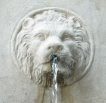Which Parable-Saying?
What about all those conflicting parables and sayings in the Gospels? Don't they show us that what we have today preserved in the Bible is not reliable? Which one of the several versions of a parable or saying is the right one? How can we be certain Yeshua even said anything like them?
Yeshua was an itinerant prophet. He spoke a great deal of the time about the same sort of things using the same sort of language, but altering it slightly to better fit the context in which he spoke. For this reason, we shouldn't be confused by similar parables and sayings or worry about whether one is a more correct record than another. Likewise, we can be certain that Yeshua really said something like them if not exactly what is preserved.
The fact that the words we have of Yeshua are both similar and dissimilar act as confirmation of those words, not as a reason to doubt their integrity. If we had received several different books from different authors in different times that gave us exactly the same, word-for-word sayings and parables, this would beg the question. We would obviously be dealing with texts that had been heavily changed and edited to agree or harmonize with one another and could then doubt whether the sayings and parables presented in them were anything like the originals. However, if the only evidence we had contradicted itself at every point, we would be unable to determine which was closer to the truth and whether we even had any true information at all.
The dissimilarity of the parables and sayings is enough to tell us that we have them in an uncorrupted form, but their constant similarity despite their differences tells us we are, again, in contact with real, historical information. And both of these are evidence not that Yeshua said something once and we have many different interpretations of it, some which may be truer than others, but that Yeshua said the same thing many times in different circumstances and fit what he said into those circumstances. Thus, in their present form, the parables and sayings verify one another and can be considered reliable.
Yeshua was an itinerant prophet. He spoke a great deal of the time about the same sort of things using the same sort of language, but altering it slightly to better fit the context in which he spoke. For this reason, we shouldn't be confused by similar parables and sayings or worry about whether one is a more correct record than another. Likewise, we can be certain that Yeshua really said something like them if not exactly what is preserved.
The fact that the words we have of Yeshua are both similar and dissimilar act as confirmation of those words, not as a reason to doubt their integrity. If we had received several different books from different authors in different times that gave us exactly the same, word-for-word sayings and parables, this would beg the question. We would obviously be dealing with texts that had been heavily changed and edited to agree or harmonize with one another and could then doubt whether the sayings and parables presented in them were anything like the originals. However, if the only evidence we had contradicted itself at every point, we would be unable to determine which was closer to the truth and whether we even had any true information at all.
The dissimilarity of the parables and sayings is enough to tell us that we have them in an uncorrupted form, but their constant similarity despite their differences tells us we are, again, in contact with real, historical information. And both of these are evidence not that Yeshua said something once and we have many different interpretations of it, some which may be truer than others, but that Yeshua said the same thing many times in different circumstances and fit what he said into those circumstances. Thus, in their present form, the parables and sayings verify one another and can be considered reliable.

0 Comments:
Post a Comment
<< Home